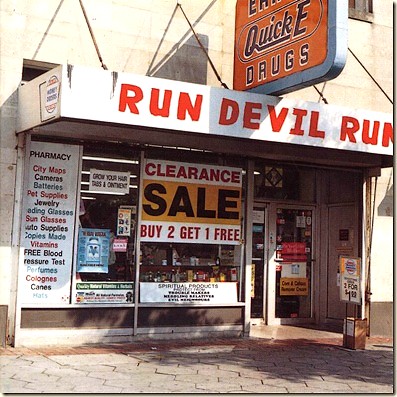
Run Devil Run (1999)

1. Blue Jean Bop
2. She Said Yeah
3. All Shook Up
4. Run Devil Run
5. No Other Baby
6. Lonesome Town
7. Try Not to Cry
8. Movie Magg
9. Brown Eyed Handsome Man
10.What it Is
11.Coquette
12.I Got Stung
13.Honey Hush
14.Shake a Hand
15.Party
Following the critical and commercial success of Flaming Pie, Paul McCartney suffered one of the most profound personal losses of his life: the death of his wife and longtime creative partner, Linda McCartney. The two had been virtually inseparable for decades, and Linda’s influence—musically and emotionally—was woven into the fabric of nearly everything Paul had done since the Beatles’ end. Her passing in 1998 was as public as it was painful. So when McCartney returned with a new record in 1999, many expected a deeply introspective, grief-stricken work. Instead, he delivered Run Devil Run—a rowdy, high-energy rock ’n’ roll record that was, in its own way, a celebration of life.
In spirit, the album echoes 1988’s CHOBA B CCCP, McCartney’s previous foray into 1950s rock revivalism. But where that record tried to sonically replicate the dusty charm of early vinyl—tube amps, slapback echo, mono hiss—Run Devil Run feels fresh, loud, and strikingly contemporary. It’s not a nostalgia exercise. It’s a cathartic burst. The arrangements are lean, the tempos brisk, and the performances have the edge of a man playing for no one’s approval but his own.
As with CHOBA, the tracklist is dominated by covers of classic rock and R&B tracks McCartney grew up on, but here he throws in a few originals—Run Devil Run, Try Not to Cry, and What It Is—all of which blend seamlessly with the vintage material. So seamlessly, in fact, that unless you're intimately familiar with the classic covers, you’d be hard-pressed to distinguish the new from the old. It’s a clever move that elevates the album from being merely reverent to something more vital.
The lineup is curious—and inspired. McCartney enlists David Gilmour (Pink Floyd) on guitar and Ian Paice (Deep Purple) on drums, not names typically associated with 1950s rock ’n’ roll. But the chemistry is undeniable. Gilmour’s sharp, tasteful guitar work adds bite, while Paice’s drumming keeps everything grounded and propulsive. This isn’t a group of legends phoning it in; it’s a band having an absolute blast.
Run Devil Run is best experienced loud, in a room full of people, preferably with drinks in hand and furniture pushed to the walls. It’s a party record, but one with weight behind it—an album that masks grief with joy, sorrow with swagger. McCartney could have retreated into introspection. Instead, he turned up the volume, called some friends, and made a record that, in its own unassuming way, might be one of the most life-affirming things he’s ever done.
Go back to the main page
Go To Next Review